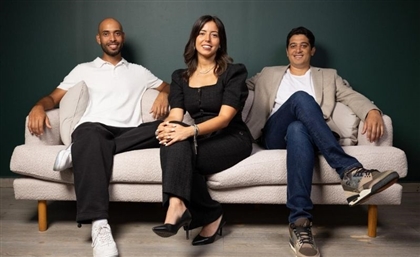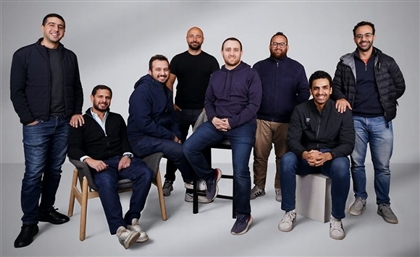How the Founder of Odiggo Managed to Garner 2,000 Customers in 7 Months
We sit down with Ahmed Omar, the founder and CEO of Odiggo, the digital marketplace for car parts aiming to create a future where cars can talk, using AI.
"I was 14 when I first sold something online," 25-year-old Ahmed Omar tells Startup Scene. His father needed some money and had a motorcycle to spare. So, he gave his son the responsibility to sell it. “It was the first cash I received from the internet; I sold it for AED 500 ($136).”
Little did Omar - or his father – know that exactly ten years from this sale he would launch Odiggo, Egypt’s first digital marketplace for car parts, and in less than seven months gain more than 2,000 active customers. We met Omar last year as we was selected as part of Egypt's 25 under 25 in 2017, and a year later, while pitching at Vested Summit, he narrates the journey that led him to creating the startup seeking to breathe life in Egypt's aching parallel economy of guerrilla car parts.
It took Omar two iterations to bootstrap and kick-start Odiggo; the first time, while he went to college. With a bachelor’s degree in economics, Omar nurtured his interest in e-commerce. Having grouped up with a bunch of like-minded friends in university, he signed up toe-commerce sites Jumia and Dubizzle (now OLX) to sell products from backstreet markets in Attaba - one of Cairo's most popular and largest street markets - online with his college friends. “We had a theory and we validated it: people online do not have convenient access to offline markets like Attaba,” he elaborates. “And on the other hand, vendors in Attaba can’t reach out to customers online.”
Graduating from the German University in Cairo's Economics school, he embarked on his 'stage two' in the US, where he worked as an e-commerce head in an Italian Lebanese company selling products in the US. He brought five million impressions per month to their products distributed among 40 websites such as Amazon and E-bay.
They were exposed to different kinds of databases, "to be exact, databases of 36 big billion-dollar websites," he clarifies. “We brought the brand locally, and online, all over the US. People in California used to get the products from New Jersey and New York,” says Omar. “So we increased the fleet on social media, e-commerce, conversion in hacking, conversion enhancements, we used all kinds of e-commerce tactics,” he says.
He learned all that from his time in the US, going to Amazon events such as FBA, and saw how they managed their inventory. “We even integrated systems with them,” he says. “We learned how to manage the shipping of 6,000 operations a day.”
On October 27th, 2017, Omar launched an online marketplace for used and new cars and called it Kasr-Zero, which is a colloquial Egyptian term for cars that have been bought but have almost never been used. Next, he decided to give Kasr-Zero a sister online marketplace that would serve as a provider for backstreet car spare parts.
“We found a huge gap in this market. People have stopped going to official car agencies for spare parts or regular checkups because it was very expensive. They don’t know where to find alternative markets for these parts, they don’t know where to install them, they have a problem in finding quality, having a guarantee,” Omar says. “So, we connect the sellers of the car parts to the car owners. Odiggo gets the supply from the vendors, so their prices are in fact cheaper than the market price.”
Pitching at EGBank’s MINT incubating programme in Zamalek Cinema on June 26th, the 25-year-old CEO and his 22 team members have many plans for the near future. They’re looking to raise an investment of $128,000 to add an entire department for sales as well as develop Odiggo’s technology to serve more people at higher quality.
“People have personal relationships with their cars, sometimes even giving them names,” says Omar. “Our vision is to make cars talk to people,” an objective that will be made possible using AI technology. Most cars in Egypt have an OBD, short for On-Board Diagnostics, an automotive term referring to a vehicle's self- diagnostic and reporting capability.
“We can install some kind of hardware that can talk to our mobile app and tell us what’s wrong with the car, to an extent of course,” he explains. “After it can talk to us, we can diagnose, after we diagnose we can tell people where these parts are on the website.” As far as Omar can recall, this kind of integrated system hasn’t been installed in any part of the world. Odiggo’s technical team has tried this system out in a few cars and it worked perfectly, as Omar describes. They’re just integrating and validating a few models.
“Lots of products and car parts are missing from the local markets, because vendors are not educated,” Omar says; explaining that average vendors don’t have access to big data to analyse the demand in order to provide adequate supply. “So, they buy and stock more products that are on low demand, and in turn freeze more cash, less sales, less supply, slower turnover… it’s a whole economy that we are trying to create for auto not just car parts. We’ve been looking to expand to motorcycles, commercial trucks, give dashboards to companies to manage all their cars.”
It’s like driving with a built-in local mechanic who knows exactly where and for how much you can buy or fix this or that body part. Omar is forseeing a high demand in this prototype and is certain that soon enough when this device is pushed into the mainstream, car owners won’t be able to live without them.
Main Image: Ahmed Omar, at MINT incubator's demo day.
Photography by @MO4Network's #MO4Productions.
Photographer: Sherif Abdel Azim.
- Previous Article Icealex Puts Impact Investing in the Egyptian Startup Map
- Next Article What Happened To Qatari Startups After The Blockade?






















